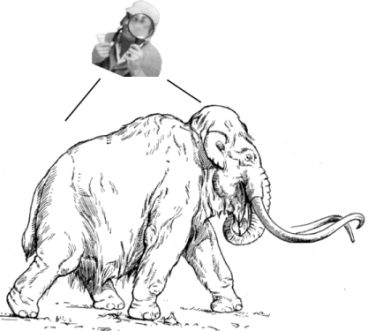See this post for the ground rules of this Face/Off.
 Most of the organizations we’re covering in Africa don’t just do one thing, they do many. I want to get a picture of what the organization as a whole is trying to accomplish (my benchmark is to understand 80% of programs) and the evidence that supports the effectiveness of those programs. I can’t think of any other way to evaluate the efficacy of an organization. It sounds like Holden is worried that asking for 80% is going to be too hard on the charities we’re evaluating. Too hard to explain 80% of what you do? How could that be? If you can’t explain 80% of what you do relatively easily, then there’s just no way that your organization is running effectively. The organizations we fund have to be able to do that.
Most of the organizations we’re covering in Africa don’t just do one thing, they do many. I want to get a picture of what the organization as a whole is trying to accomplish (my benchmark is to understand 80% of programs) and the evidence that supports the effectiveness of those programs. I can’t think of any other way to evaluate the efficacy of an organization. It sounds like Holden is worried that asking for 80% is going to be too hard on the charities we’re evaluating. Too hard to explain 80% of what you do? How could that be? If you can’t explain 80% of what you do relatively easily, then there’s just no way that your organization is running effectively. The organizations we fund have to be able to do that.
Holden’s approach, I think, relies on asking the charities what they plan to do in the future and why and relying on that to guide our grantmaking process. I just don’t put a lot of weight on what a charity tells us they’re going to do. We’re funders and they’re going to tell us what we want to hear. I don’t want to fund a charity based on who can give us the slickest presentation and who can whisper sweet nothings in my ear.
Even if I did mostly buy what the charities were telling me, I question their ability to reasonably predict their program’s success. Why is it so difficult? Really, we just need a charity to tell us what they’re planning to do, argue that it’s smart, and articulate how they plan to execute the program. But, it’s just not that simple because it’s really difficult to figure out what’s going to work. Africa has a lot of complicated, interconnected problems, and I don’t want to judge the best organization based on what I think will work. I want to see definitive results of what works, and then I want to throw money at it. I want to fund the organization that’s proven it can effect change (save lives, increase economic opportunity, etc.) despite all the obstacles. Holden would probably object here that if the problems are so complicated why do I trust any organization to decide what to do next? Well, I don’t just think that those that have proven, effective programs are more likely to make better decisions in the future (though the probably would). I want to fund organizations that are going to keep executing on their proven programs. As long as the same problems persist in Africa, I just want to keep throwing money at the organizations with proven, effective programs.
That’s the heart of my argument, but there are two more pieces of support rattling around in my head. First, I can imagine funding something new if it were necessary. But, there’s so many ways to save lives in Africa that have already been proven, that I don’t see any reason to go off and try something new. Second, I want to fund organizations for which it’s incredibly clear why we’ve chosen them. I want to fund organizations that allow anyone to read our site and agree or disagree with our judgments based on the facts. I want to take as much as possible of the subjectivity – how well a new program will likely work in the future – out of the equation.
